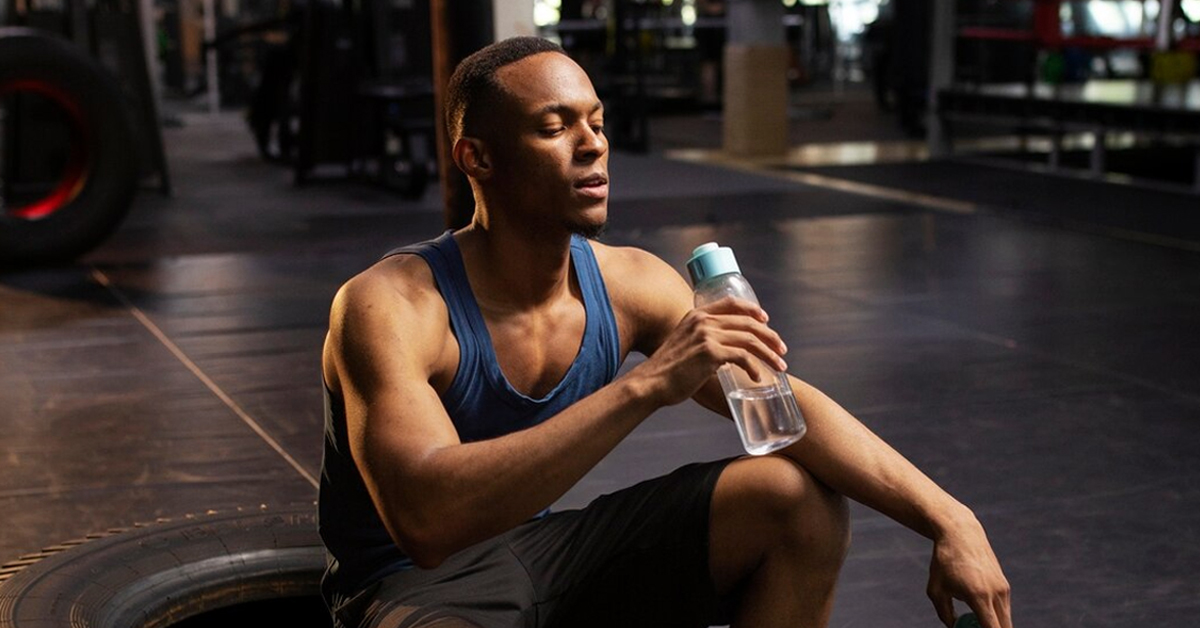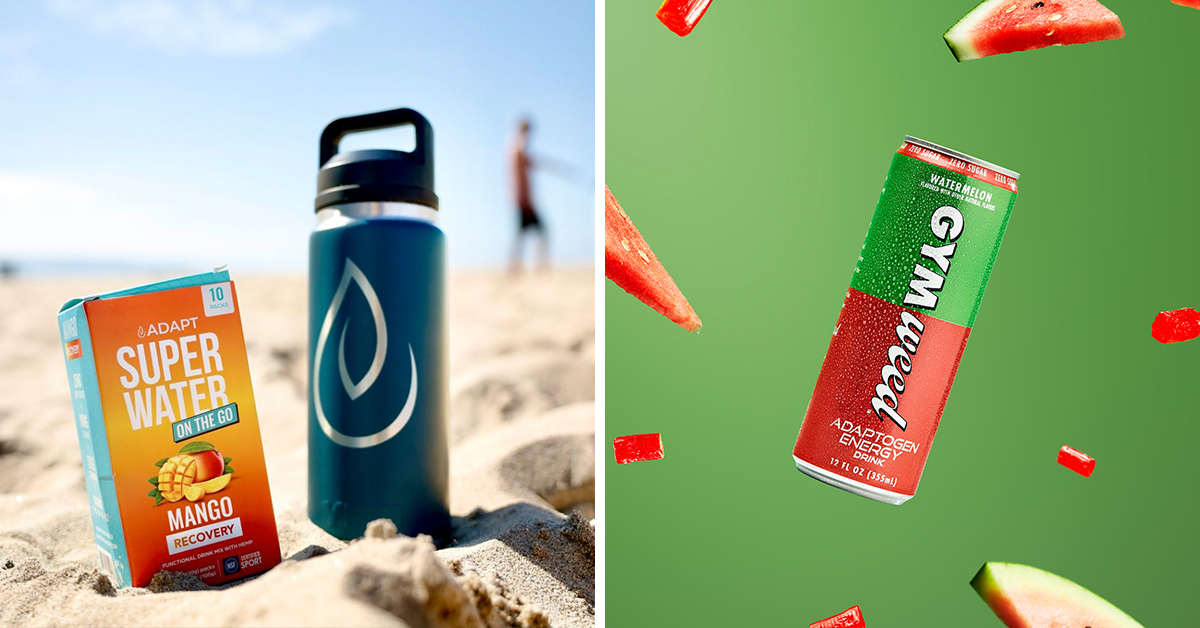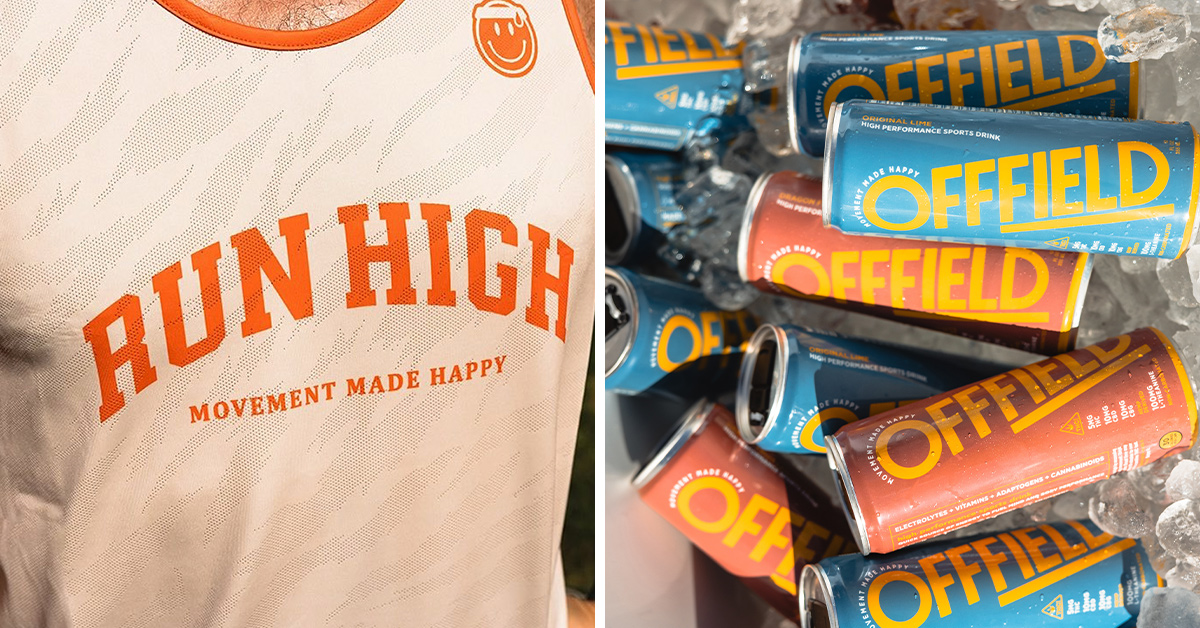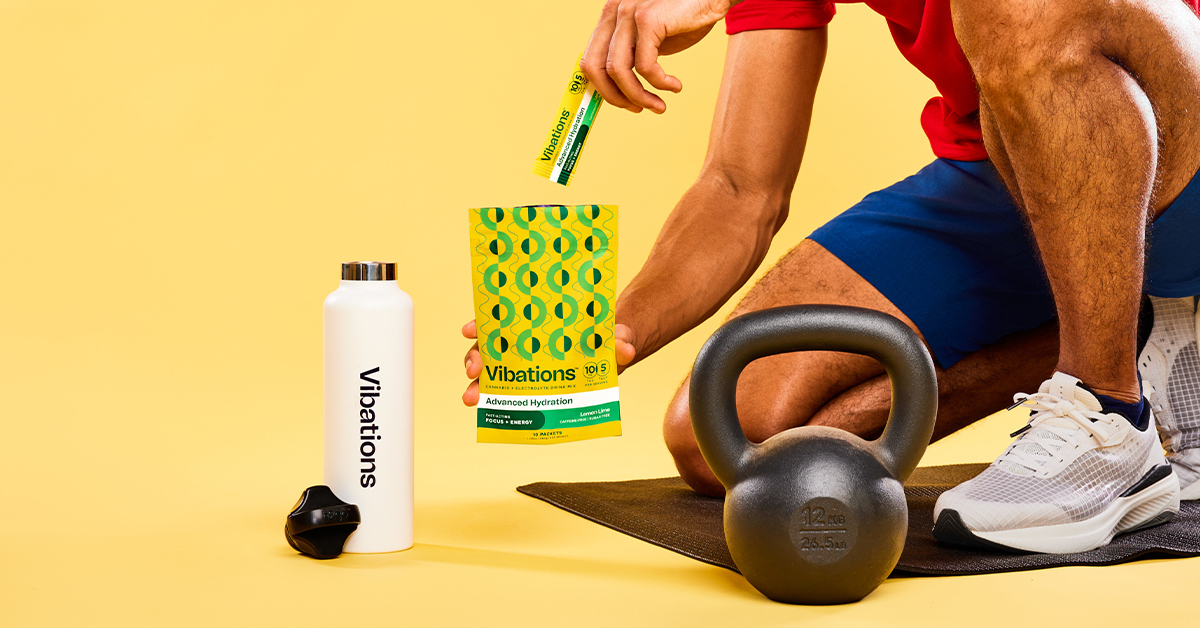 It’s been about five years since cannabidiol (CBD) was introduced as an innovative ingredient for athletic recovery and hydration. As expectations have tempered over the years, another, more recognizable cannabinoid is pitching itself to fitness enthusiasts.
It’s been about five years since cannabidiol (CBD) was introduced as an innovative ingredient for athletic recovery and hydration. As expectations have tempered over the years, another, more recognizable cannabinoid is pitching itself to fitness enthusiasts.
The success of low-dose, hemp-derived THC drinks as an alcohol alternative has helped pave the way for the ingredient to test out new territory in beverages, like sports drinks. If it succeeds, it might resurrect the initial interest in hemp that active lifestyle consumers had in the early 2020s.
After the 2018 Farm Bill opened the door for hemp producers to enter food and beverage, CBD quickly started showing up in recovery products like sports and hydration drinks. At the time, some industry watchers were high enough on it to predict that Gatorade and other category leaders would formulate around the non-intoxicating cannabinoid. Yet, the first wave of CBD drinks didn’t catch fire as hoped with some brands collapsing under the weight of their own hype.
CBD Is Not Dead, Just Stagnant
Defy, founded by Hall of Fame football player Terrell Davis, was one of the first and most prominent sports nutrition beverage companies to launch into the nascent CBD category in 2019. Despite trying a variety of product iterations from flavored sports drinks to infused alkaline water to gummies and powders, the brand appears to have shut down last year.
(The brand did not return a request for comment on if it was still available.)
Defy’s splashy entrance into sports drinks paved the way for other entrants into the CBD-fueled recovery and hydration category. Industrial hemp producers spun off CPG brands, with companies like Miraflora and Upsy taking a wellness approach.
Various professional athletes latched onto the trend: former NFL players Rob Sims and Calvin Johnson Jr. launched a THC-free cannabinoid powdered drink brand Primitiv Performance last year.
Just Live came on the scene in October 2020 backed by NBA star Klay Thompson, pro-soccer player Alex Morgan and extreme sports enthusiast Travis Pastrana. Starting with CBD balms and gummies before trying its hand in sparkling waters, Just Live seems to have settled on a cannabinoid-free Advanced Hydration powder line to complement its CBD topicals and edibles.
The U.S. CBD-infused beverage market is expected to reach $501 million by 2030, at a CAGR of 14.7% during the forecast period, according to a July 2023 report from Data Bridge Market Research.
What is holding CBD back from more explosive growth is the lack of a regulatory framework that was expected to come from the FDA years ago. Other than a statement posted in January 2023, saying that the FDA had “convened a high-level internal working group to explore potential regulatory pathways for CBD products,” there has been little oversight on how CBD brands can operate safely, legally and profitably in terms of signing major distribution partners.
Nutraceutical and functional CPG consultant Joshua Schall said CBD beverages have been “stunted” due to the “lack of clarity” the industry needed to grow distribution.
“When it needed momentum, that purgatory state of regulation really hurt it,” he said. “Large stakeholders — retailers or distributors — couldn’t really move. This created an availability problem.”
Many major retailers have taken a wait-and-see approach around selling CBD drinks, leaving many large beverage companies to sit on the sidelines as well. If consumers are unable to find the products in stores it makes it hard to move the category forward around trial and adoption, Schall said.
CBD usage has remained relatively flat among consumers who use it before or after “playing physical sports or doing heavy physical work,” rising about 1% year-over-year, according to survey data from Brightfield Group.
Adaptation Amid Lagging Regulatory Guidance
“It’s been a long road where a lot of the companies in the space thought that the FDA would figure it out probably a little bit faster than they have,” said Adapt Brands founder Richard Harrington.
An early adopter in CBD recovery drinks, Adapt Brands always positioned itself around its hero ingredient. It became the first beverage to get NSF International Certified for Sport and has lined up a series of professional athletes as investors. The coconut-water-based sports drink started as a glass-bottled liquid beverage but rolled out its SuperWater On-The-Go powders last July.
Recently, the brand made the decision to pull its liquid drinks from the portfolio in order to focus solely on its 25 mg hemp extract mixes. It currently has four varieties: Recovery, Hydrate, Immunity and Sleep. Adapt is in the process of raising an expected $2 million investment to support the launch of a non-CBD line of its powders that will complement the infused mixes.
“I hate to use this pun, but you have to be able to adapt, right?” Harrington said. “The big thing for us is understanding where our market is and where we want to be within sports and where we want to be within retail.”
The CBD-free powders bring Adapt growth opportunities in a space that is less fraught with regulatory obstacles and some of the hurdles it faces getting mass retail distribution, Harrington said.

Fitness energy drink maker Gym Weed has taken a similar approach. In March 2022, Gym Weed launched into the energy set with a 3-SKU line of 200 mg caffeinated beverages. The brand’s differentiator was supposed to be a payload of 20 mg of hemp extract paired with adaptogens like Lion’s Mane and L-theanine.
What the brand found was that its consumers weren’t buying the anxiety-reducing properties of hemp but instead were more interested in the cannabinoid-free adaptogenic drinks launched about six months after Gym Weed’s hemp drinks hit the market. The adaptogenic line ended up eventually making up about 90% of its business.
“A lot of the retailers that were hesitant of the CBD line were all in on our adaptogen line,” said founder Shane McCassey. “And so, our customers really made the decision for us.”
What came with the pivot was the added advantage of more sales on ecommerce platforms like Amazon and the ability to run ads on Instagram and TikTok. Gym Weed pulled its hemp line last summer and formulated with 300 mg of ashwagandha, giving the product the same potentially anxiety-reducing properties.
The problem for CBD is that consumers’ understanding of its effective properties remains relatively low; whereas, the rise of hemp-derived THC beverages brings a recognizable effect to the sports and hydration categories.
Brightfield Group calculates that 46.4% of hemp-derived THC users take products to help with physical relief (i.e. joint/inflammation relief).
The introduction of low-dose or microdosed THC options in conjunction with energy-producing caffeine and the less experiential anti-inflammatory effects of CBD has led to a new subcategory of cannabinoid sports drinks with tangible results.
Yet, this is also in its infancy.
“It’s a very niche consumer that understands how THC might be incorporated in their workout routine,” said Ben Larson, CEO of cannabis and hemp infusion technology company Vertosa. “There’s the avid consumers that already know that THC helps them focus and get a better workout, and so they use it pre workout or the relaxation and pain relief that it can add to a post workout. But it requires an immense investigation that brands just haven’t yet invested in.”
Paired with a patchwork regulatory environment for cannabis beverages state-by-state, the education gap has made an addressable market for THC sports drinks small enough that it has “largely fallen flat,” Larson added.
That hasn’t stopped some brands from trying.
A “Run High” Mentality
One company has made education a centerpiece of its value proposition to consumers as it tries to create an “athletic cannabis” beverage category.

Los Angeles-based company Offfield has positioned itself on the “cutting edge” of a body of research connecting the elusive “runner’s high” with the endocannabinoid system, said co-founder and CEO Tony Fur.
“The reason why we use cannabinoids, and not just CBD, is essentially to mimic the same effects as the runner’s high in order to improve mood and be able to enjoy the experience of exercise,” Fur said.
The Los Angeles-based business has taken a “full plant approach” to its integration of cannabis into its workout products. It offers gummies, hydration powders and canned sports drinks that are formulated with a blend of CBD and CBG with caffeine and electrolytes to aid in athletic activities. Some products contain a 3mg to 5mg dose of hemp-derived THC to aid in the effect.
What’s hard for Offfield is that it is often pigeonholed among consumers and distributors into the alcohol-alternative category, where much of the low-dose cannabev set is positioning. Offfield has instead doubled down on DTC by communicating directing with its consumers.
“It’s a part of our survival,” Fur said. The company has reformulated many times as a result of the direct relationship it has with its customers online and through partnerships with run club organizations.
“That’s not something you can always get from retail,” he added. “Is it ready for shelves? Absolutely. Are there enough of them to make it viable as a business? Not yet, but it’s getting there.”
Multi-state marijuana company MariMed has used its positioning in the regulated dispensary channel to offer its own cannabis and hydration drink mix Vibations.

As the veil of cannabis prohibition has slowly lifted across the country, MariMed, headquartered in Norwood, Mass., saw an opportunity to bring more use occasions to the regulated THC market.
“We’re sort of broadening the aperture a little bit,” said SVP of Marketing Jay O’Malley.
Vibations has four varieties of caffeinated hydration sticks, two caffeine-free options with THCV and a Sleep mix which uses CBN. Consumers’ different need states has factored into this diversification in its portfolio, O’Malley said.
“Cannabis is no longer about just checking out for the day and being stoned,” he said. “Cannabis, when used right, helps you get the most out of your day based on whatever those need states are. Exercise and energy fit right into that.”